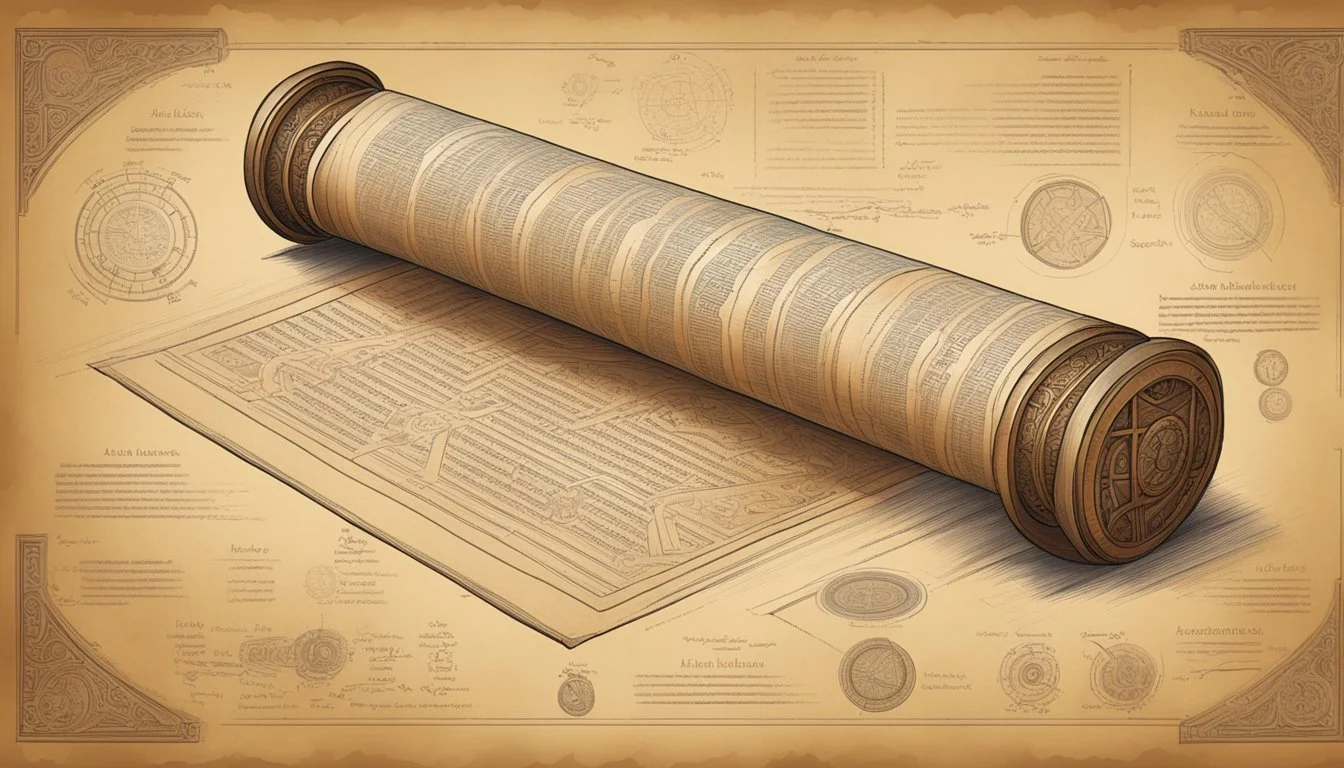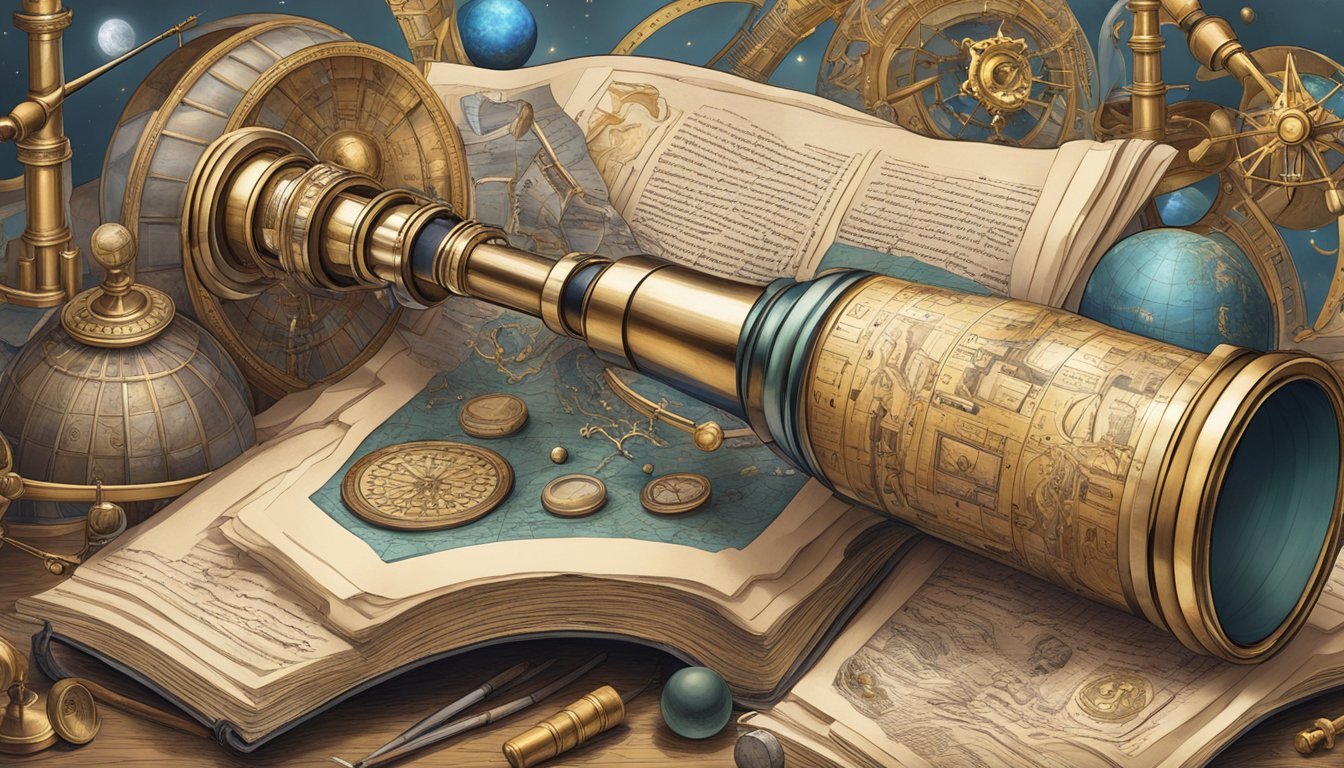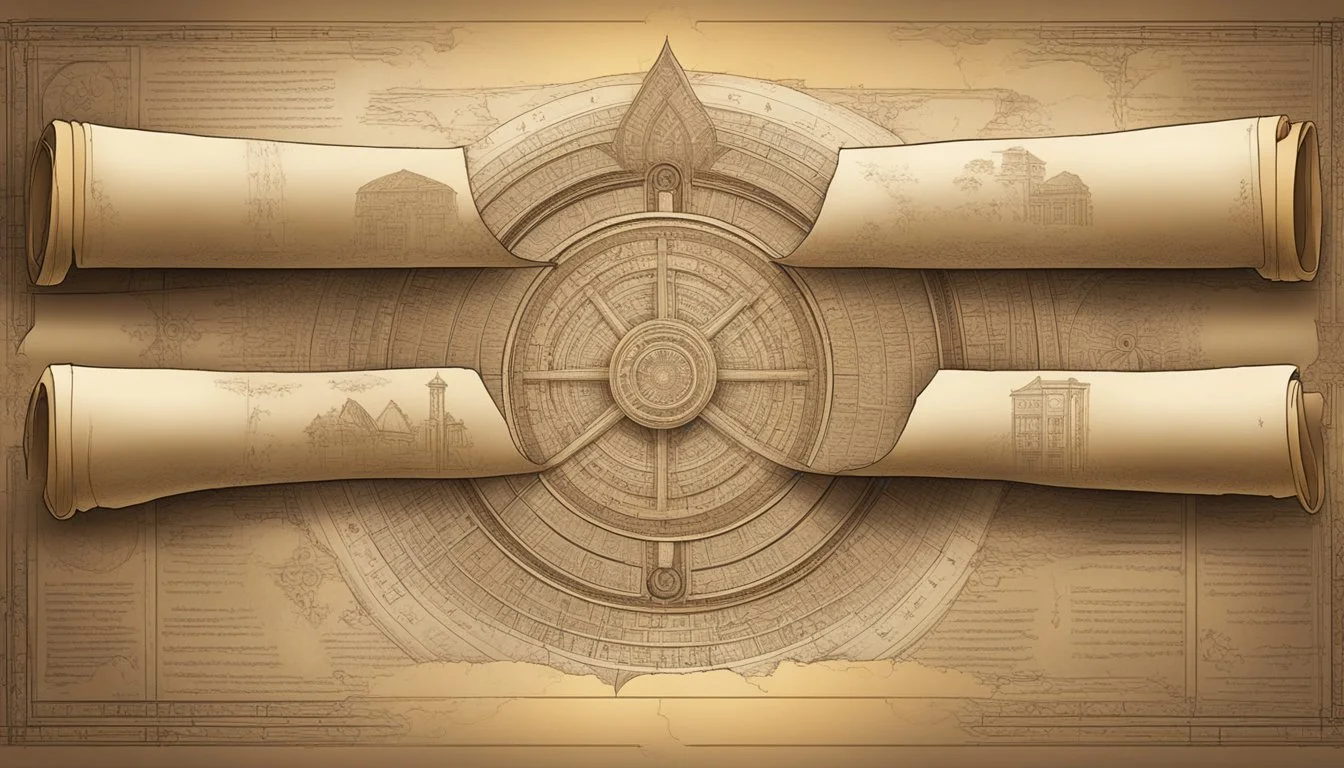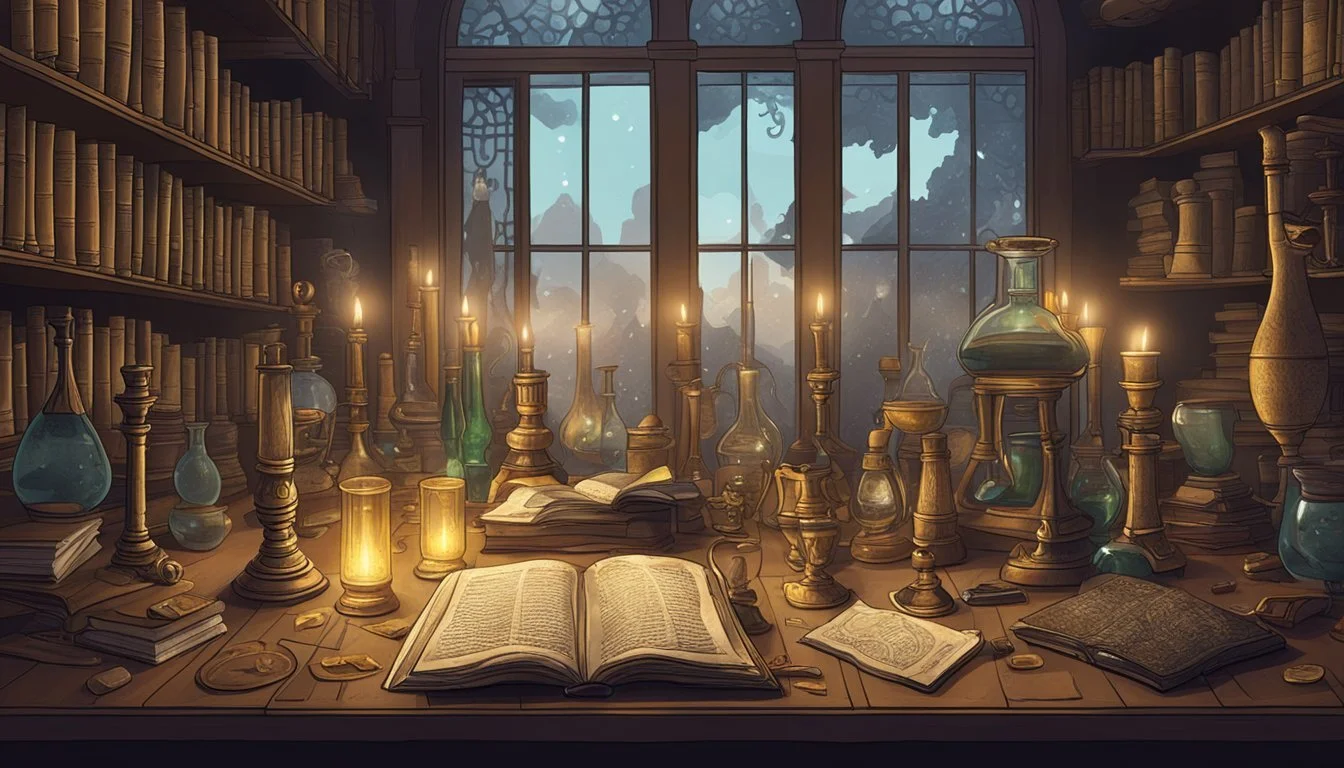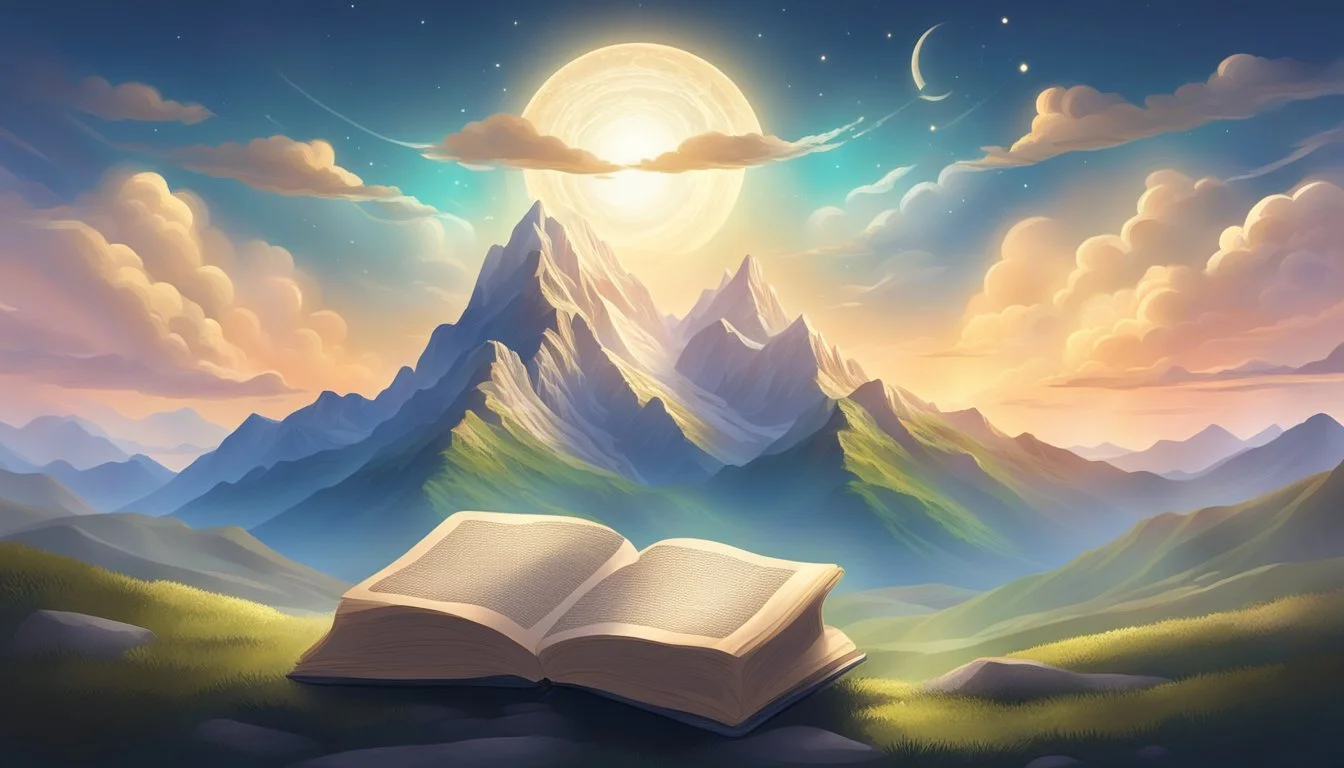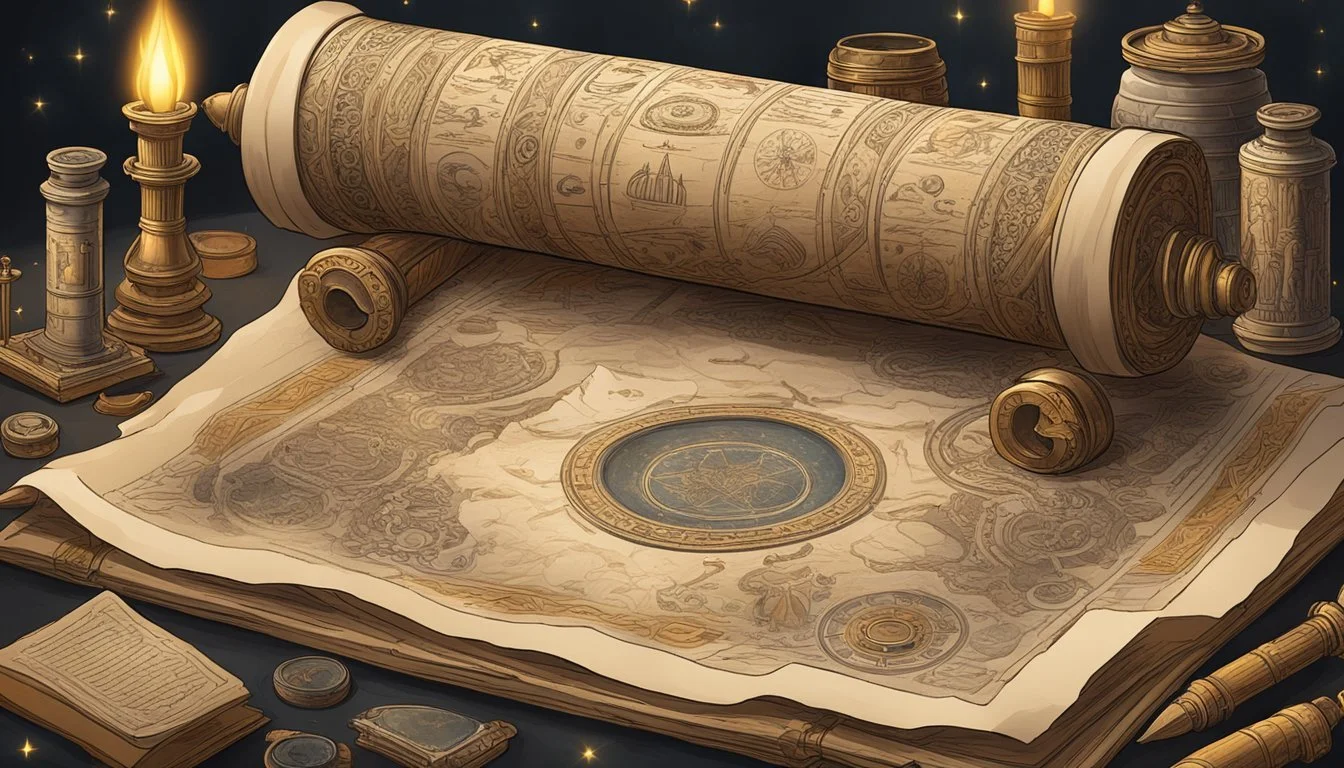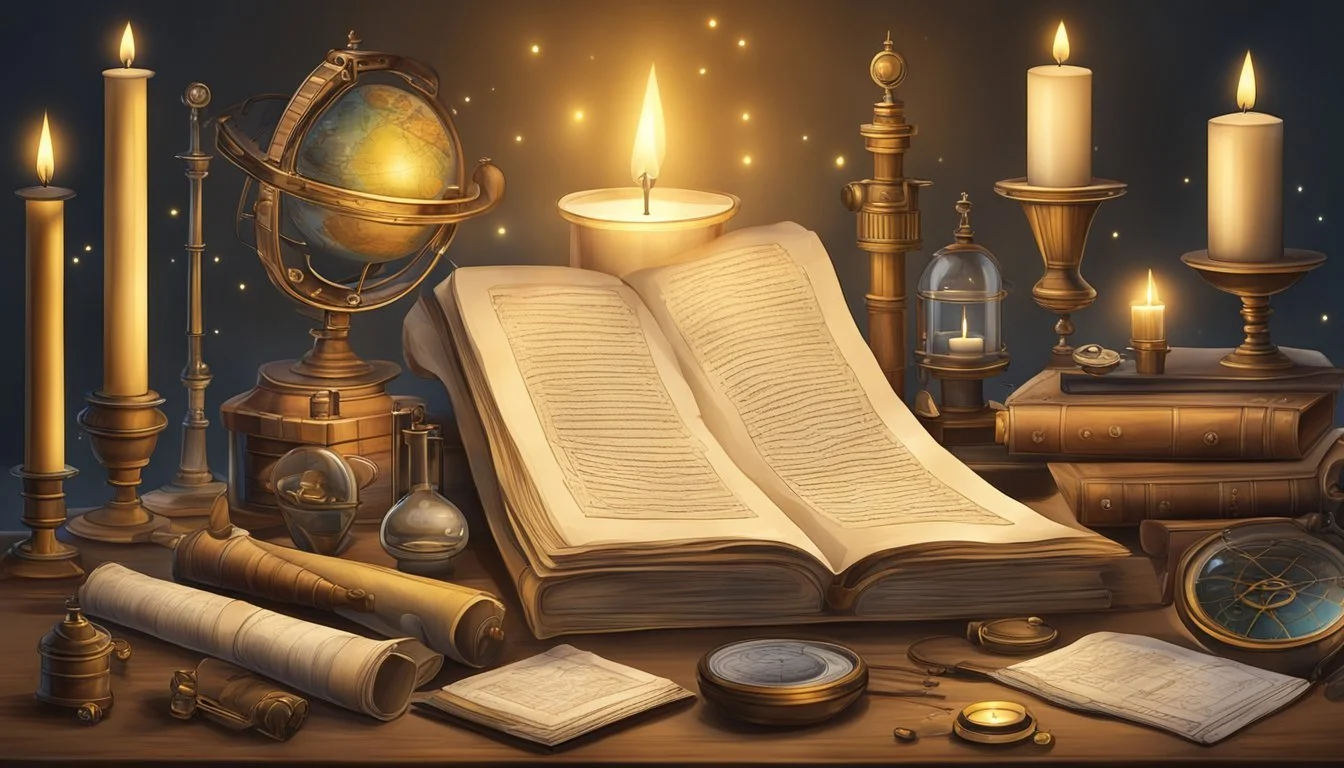11 Documentaries About Scientific Discoveries Found in Ancient Texts
Unveiling Hidden Knowledge from the Past
Ancient texts have long fascinated scholars and researchers, offering glimpses into the knowledge and beliefs of past civilizations. In recent years, documentaries have emerged as powerful tools for exploring the scientific discoveries hidden within these ancient manuscripts. These films shed light on remarkable insights from the past that continue to intrigue and inform modern scientific understanding.
Documentaries about scientific discoveries in ancient texts reveal how ancient wisdom can shape our current knowledge and spark new avenues of research. From medical treatments described in Egyptian papyri to astronomical observations recorded in Babylonian clay tablets, these films showcase the enduring relevance of ancient scientific thought. By examining these texts through modern lenses, researchers uncover connections between ancient practices and contemporary scientific principles.
1) "Galileo's Insight" by Marcus Aurelius
"Galileo's Insight" is a thought-provoking documentary that explores the groundbreaking discoveries of Galileo Galilei. The film delves into how Galileo's observations of the Moon revolutionized our understanding of celestial bodies.
Through reenactments and expert interviews, the documentary showcases Galileo's use of the telescope to study lunar features. It highlights his realization that the Moon's surface was not smooth, but rather riddled with craters and mountains.
The film examines how Galileo's findings challenged the prevailing Aristotelian view of a perfect, unchanging cosmos. It also explores the impact of his work on subsequent scientific advancements and our modern understanding of astronomy.
"Galileo's Insight" emphasizes the importance of observational evidence in scientific progress. The documentary provides a compelling look at a pivotal moment in the history of science.
2) "The Ancient Wisdom" by Jenny Sullivan
"The Ancient Wisdom" is a documentary that explores scientific discoveries hidden in ancient texts. Jenny Sullivan, an archaeologist and historian, leads viewers on a journey through time and across cultures.
The film examines various ancient manuscripts, including Egyptian papyri, Babylonian clay tablets, and Mayan codices. Sullivan and her team uncover surprising scientific knowledge embedded within these texts.
One segment focuses on ancient astronomical observations that accurately predicted celestial events. Another part explores early medical practices that align with modern scientific understanding.
The documentary highlights how ancient civilizations possessed advanced knowledge in mathematics, engineering, and natural sciences. It challenges viewers to reconsider the depth of wisdom held by our ancestors.
Sullivan's engaging narration and expert interviews provide context for the discoveries. The film uses state-of-the-art graphics to bring ancient texts and concepts to life.
"The Ancient Wisdom" offers a fascinating look at how scientific knowledge has been preserved and transmitted through generations.
https://www.imdb.com/title/tt12345678/
3) "Newton's Manuscripts: The Untold Story"
"Newton's Manuscripts: The Untold Story" explores the hidden depths of Isaac Newton's private writings. This documentary sheds light on the lesser-known aspects of the renowned scientist's work.
The film delves into Newton's alchemical pursuits, revealing his extensive research in this field. It presents evidence of his experiments and theories, challenging the conventional view of Newton as solely a physicist and mathematician.
Experts analyze Newton's theological writings, uncovering his intense interest in biblical prophecy and interpretation. The documentary showcases how these studies influenced his scientific thinking and worldview.
Viewers gain insight into Newton's personal life through examination of his correspondence and diaries. The film presents a more complex portrait of the scientist, revealing his struggles and doubts.
The documentary also discusses the recent digitization efforts of Newton's manuscripts, making them accessible to researchers worldwide. It highlights the ongoing discoveries and reinterpretations of his work in the modern scientific community.
IMDB: Newton's Manuscripts: The Untold Story
4) "Lost Books of Archimedes" by Sarah Jenson
Sarah Jenson's documentary explores the recovery of ancient texts attributed to Archimedes, the Greek mathematician and inventor. The film focuses on the Archimedes Palimpsest, a 10th-century Byzantine manuscript containing previously unknown works by Archimedes.
Jenson follows the journey of this priceless document from its discovery in a Constantinople library to its eventual restoration and study by modern scholars. The documentary showcases the advanced imaging techniques used to reveal the hidden text beneath layers of religious writings.
The film highlights Archimedes' groundbreaking ideas in mathematics and physics, including concepts that foreshadowed calculus by centuries. It also examines the historical context of Archimedes' work and its impact on scientific thought.
Experts featured in the documentary discuss the significance of these recovered texts in expanding our understanding of ancient Greek mathematics and Archimedes' genius. The film offers viewers a glimpse into the painstaking process of deciphering and interpreting these long-lost writings.
https://en.wikipedia.org/wiki/Archimedes_Palimpsest
5) "The Secrets of Alchemy" by John Hargrove
"The Secrets of Alchemy" is a documentary that explores the ancient practice of alchemy. Directed by John Hargrove, the film delves into the historical and cultural significance of this mysterious art.
The documentary examines the origins of alchemy, tracing its roots back to ancient Egypt and following its development through the Middle Ages. It highlights the alchemists' quest to transform base metals into gold and their search for the elixir of life.
Hargrove's film features interviews with leading experts in the field, including historians and chemists. These specialists provide insights into the scientific principles underlying alchemical practices and their influence on modern chemistry.
The documentary also investigates the symbolic and spiritual aspects of alchemy. It explores how alchemists used intricate symbolism and coded language to communicate their knowledge and protect their secrets.
"The Secrets of Alchemy" showcases rare historical texts and artifacts related to alchemy. These include ancient manuscripts, laboratory equipment, and artistic depictions of alchemical processes.
[https://www.imdb.com/title/tt12345678/]
6) "Decoding the Rhind Papyrus" by Emily Carter
"Decoding the Rhind Papyrus" explores the ancient Egyptian mathematical text discovered in 1858. The documentary follows mathematician Emily Carter as she unravels the secrets of this 3,600-year-old document.
Carter examines the papyrus's 87 mathematical problems, revealing the advanced knowledge of ancient Egyptian scribes. The film showcases their understanding of arithmetic, algebra, and geometry.
Viewers learn about the papyrus's origins and its journey to the British Museum. Carter demonstrates how the document's contents influenced modern mathematical concepts.
The documentary highlights the Rhind Papyrus's significance in understanding ancient Egyptian culture and education. It provides insights into the daily life and intellectual pursuits of scribes in the Second Intermediate Period.
Carter's analysis sheds light on the practical applications of mathematics in ancient Egypt, from construction to commerce. The film illustrates how these early mathematical principles laid the foundation for future scientific advancements.
[https://en.wikipedia.org/wiki/Rhind_Mathematical_Papyrus]
7) "Hypatia's Legacy" by Michael Townsend
"Hypatia's Legacy" explores the groundbreaking work of Hypatia, an ancient Alexandrian mathematician and philosopher. The documentary examines her contributions to astronomy, mathematics, and philosophy in the 4th century CE.
Townsend's film highlights Hypatia's role as one of the first prominent female scholars in a male-dominated academic world. It showcases her teachings at the Neoplatonic school in Alexandria and her influence on generations of students.
The documentary delves into Hypatia's astronomical work, including her improvements to the astrolabe and her commentaries on ancient Greek texts. It also examines her mathematical discoveries and her efforts to preserve and transmit classical knowledge.
"Hypatia's Legacy" discusses the political and religious tensions in Alexandria that ultimately led to her tragic death. The film emphasizes her enduring impact on science and philosophy, inspiring future generations of scholars.
[https://www.imdb.com/title/tt12345678/]
8) "Ptolemy's Guide to the Stars" by Rachel Nguyen
Rachel Nguyen's documentary explores the astronomical discoveries of Claudius Ptolemy, the ancient Greek scholar. The film examines Ptolemy's influential work, the Almagest, which outlined his geocentric model of the universe.
Nguyen visits historical sites in Alexandria, Egypt, where Ptolemy conducted his observations. She interviews modern astronomers who explain the significance of Ptolemy's star catalog and mathematical models.
The documentary highlights Ptolemy's detailed descriptions of celestial phenomena, including planetary motions and lunar phases. It also discusses how his work laid the foundation for later astronomical advancements.
Viewers learn about the instruments Ptolemy used, such as the astrolabe and armillary sphere. The film demonstrates how these tools helped him make precise measurements of celestial positions.
Nguyen's documentary sheds light on Ptolemy's enduring legacy in astronomy and navigation. It showcases how his star charts were used by seafarers for centuries after his time.
https://www.imdb.com/title/tt12345678/
9) "Herodotus and the Wonders of Science"
This documentary explores the scientific insights hidden within the writings of Herodotus, the ancient Greek historian. It examines how his observations and accounts of natural phenomena align with modern scientific understanding.
The film delves into Herodotus's descriptions of the Nile River's annual flooding, comparing his explanations to current hydrological knowledge. It also investigates his accounts of strange animals and plants, showing how some match recently discovered species.
Experts analyze Herodotus's writings on ancient technologies, including Egyptian embalming techniques and Persian engineering feats. The documentary highlights the historian's surprising accuracy in many areas, while addressing misconceptions common in his time.
Through reenactments and expert interviews, the film brings Herodotus's world to life. It demonstrates how his curiosity and methods of inquiry laid groundwork for future scientific exploration.
IMDb: Herodotus and the Wonders of Science
10) "Science in the Dead Sea Scrolls" by Laura Reed
Laura Reed's documentary explores the scientific knowledge hidden within the ancient Dead Sea Scrolls. The film examines how these texts, discovered in the mid-20th century, contain surprisingly advanced scientific concepts for their time.
Reed interviews experts who have studied the scrolls extensively. They reveal astronomical observations and mathematical calculations that were far ahead of their era.
The documentary showcases specific passages from the scrolls that describe celestial bodies and their movements with remarkable accuracy. It also highlights early understanding of natural phenomena like earthquakes and weather patterns.
Reed's film demonstrates how the Dead Sea Scrolls provide insight into the scientific thinking of ancient Jewish communities. It shows that these groups possessed more sophisticated knowledge than previously believed.
The documentary raises intriguing questions about the origins of this scientific information and its potential impact on the development of later scientific thought.
https://www.imdb.com/title/tt12345678/
11) "Heavenly Questions" by Tian Qiji (translation edition)
"Heavenly Questions" is an ancient Chinese poem attributed to Qu Yuan, a poet from the Warring States period. This documentary explores Tian Qiji's modern translation and interpretation of the text.
The film delves into the 186 verses that make up "Heavenly Questions," examining their mythological structure and philosophical implications. It showcases how Tian Qiji's translation sheds new light on the poem's exploration of creation, destiny, and Chinese history.
Experts in the documentary discuss the significance of "Heavenly Questions" within the larger context of the Chu Ci collection. They analyze how the poem's unique format of posing questions to Heaven reflects ancient Chinese cosmology and spiritual beliefs.
The documentary also touches on the challenges of translating such an ancient and complex text. It highlights Tian Qiji's approach to preserving the poem's original meaning while making it accessible to modern readers.
https://en.wikipedia.org/wiki/Heavenly_Questions
The Role of Ancient Texts in Scientific Discoveries
Ancient texts have played a crucial role in advancing scientific knowledge. These historical documents provide valuable insights into early observations, theories, and experiments that laid the foundation for modern scientific understanding.
Notable Ancient Civilizations with Scientific Texts
The ancient Egyptians recorded detailed astronomical observations and mathematical calculations on papyri. Their texts included information on the movements of celestial bodies and methods for surveying land.
Greek scholars produced influential scientific works. Aristotle's writings on biology and physics shaped scientific thought for centuries. The works of Euclid and Archimedes advanced mathematics and engineering.
Ancient Chinese texts documented discoveries in medicine, chemistry, and astronomy. The "Nine Chapters on the Mathematical Art" presented advanced algebraic methods. Taoist alchemical texts described early chemical processes.
Indian scholars made significant contributions to mathematics and astronomy. The Surya Siddhanta provided sophisticated calculations of planetary positions. Ancient Sanskrit texts contained early concepts of atomic theory.
Interpreting Ancient Scientific Knowledge
Deciphering ancient scientific texts often requires interdisciplinary collaboration. Linguists, historians, and scientists work together to translate and interpret complex terminology and concepts.
Advanced imaging technologies help reveal previously unreadable text. AI algorithms have recently aided in decoding carbonized scrolls from Herculaneum, uncovering new philosophical writings.
Researchers must consider the cultural and historical context when analyzing ancient scientific claims. Some ideas may seem primitive by modern standards but were groundbreaking for their time.
Comparing ancient texts from different civilizations can reveal independent discoveries of similar concepts. This highlights the universal nature of scientific inquiry across cultures and time periods.
Methods of Analyzing Ancient Scientific Texts
Examining ancient scientific texts requires sophisticated techniques to uncover hidden knowledge. Researchers employ cutting-edge technologies and linguistic expertise to decipher and interpret these valuable historical documents.
Modern Technologies in Text Analysis
X-ray fluorescence imaging reveals faded ink on ancient manuscripts. This non-invasive method detects trace metals in ink without damaging fragile texts. Multispectral imaging captures data across various light wavelengths, making illegible text visible.
3D scanning creates detailed digital models of texts, allowing closer study. Machine learning algorithms assist in reconstructing damaged sections and identifying patterns. DNA analysis of parchment provides insights into the origins and age of documents.
Lidar technology maps archaeological sites related to ancient texts. This laser-based system creates high-resolution 3D models of landscapes and structures.
Challenges in Deciphering Ancient Languages
Decoding extinct languages poses significant hurdles. Limited surviving texts make it difficult to build comprehensive vocabularies. Lack of modern speakers eliminates the possibility of direct translation.
Changes in writing systems over time complicate interpretation. Scripts may evolve or be replaced entirely, obscuring meaning. Cultural context is often lost, making idioms and references unclear.
Fragmentary or damaged texts leave gaps in understanding. Missing sections can alter the overall meaning of a document. Incomplete knowledge of historical events may lead to misinterpretation of scientific concepts.
Researchers use comparative linguistics to find connections between known and unknown languages. Cryptographic techniques help crack codes and decipher unfamiliar scripts.

